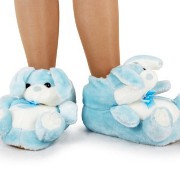 Photo: Getty Images
Photo: Getty Images
Have you ever been lying on the beach feeling all toasty warm while your toes still feel like ice? When you shake hands with people do they tell you what cold hands you have?
They say cold hands and toes mean a warm heart but that’s probably bologna. The problem might actually be Raynaud’s phenomenon. This disorder can cause affected extremities to discolor from pale white, to blue, and sometimes after an episode, red.
Those cold tootsies may be part of a disorder that affects 28 million people. Classic triggers include cold temperatures and emotional stress, both of which result in vasospasms that decrease blood supply. However, those with Raynaud's can also be affected by holding a cold glass or handling frozen foods. In addition to causing numbness, discomfort and even pain, Raynaud’s causes nails to become brittle with longitude ridges.
Treatments available include calcium channel blockers and alpha blockers that your doctor can prescribe, but in most cases common sense can make the problem livable. In cold weather keep fingers and toes covered with socks and gloves made with fabric that holds heat such as polar tech. When a bout of popsicle toes occurs, try to stimulate the area to increase blood flow. Another option is to place hands or toes into warm – not hot - water until the episode passes.
No one wants cold fingers and toes but there are certainly worse things. For more information log onto any of the links below and then put your gloves back on!
http://www.mayoclinic.com/health/raynauds-disease/DS00433
http://www.raynauds.org/
http://www.ehow.com/how_2092877_treat-raynauds-disease.html





Add a CommentComments
There are no comments yet. Be the first one and get the conversation started!